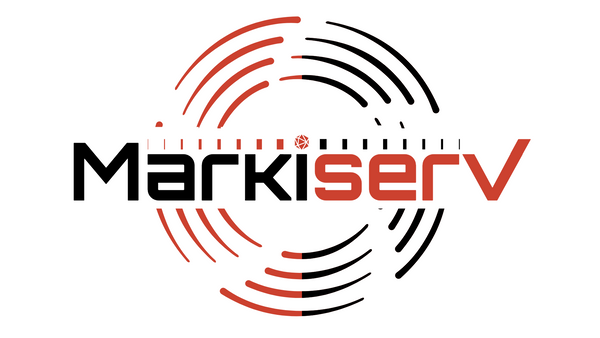
How to Bid on Government Contracts and Prepare for Success: A Comprehensive Guide
Share
In today’s competitive business landscape, bidding on government contracts is an excellent opportunity for companies looking to expand their reach and secure long-term projects. The government committed a staggering $759 billion dollars to contracts in 2023, making this a huge business opportunity. Winning a government contract can significantly boost your revenue and open doors to future opportunities. However, the process of bidding and preparing for government contracts can be complex. In this guide, we will walk you through the steps involved in bidding on government contracts, preparing for success once you’ve won a contract, and how effective marketing and graphic design strategies can enhance your efforts throughout the process.
If you need a shorter guide instead of reading through this one please click here.
Understanding Government Contracts: The Basics
Government contracts are agreements between a private company and a government entity for the provision of goods or services. These contracts can range from small, short-term projects to large, multi-year initiatives. Bidding on government contracts typically involves responding to Requests for Proposals (RFPs), where the government outlines its requirements and invites companies to submit bids.
Before you dive into the bidding process, it’s important to understand the different types of government contracts:
- Fixed-Price Contracts: The contractor is paid a set amount, regardless of the actual costs incurred.
- Cost-Reimbursement Contracts: The government reimburses the contractor for their costs, with an additional fee for profit.
- Time-and-Materials Contracts: The contractor is paid based on the time and materials spent on the project.
Knowing which type of contract you’re dealing with will help shape your approach to pricing and project management.
Steps to Bid on Government Contracts
Register Your Business
Before you can start bidding on government contracts, you must register your business with the appropriate government agencies. In the United States, this involves registering with the System for Award Management (SAM). SAM is a database that government agencies use to find vendors for contracts.
To register, you’ll need to provide essential business information, including your tax identification number, bank details, and NAICS (North American Industry Classification System) code. This step ensures that you are legally authorized to do business with the government.
Search for Relevant Contracts
Once registered, you can begin searching for government contracts that align with your services. Several online platforms list government contracting opportunities, including:
- Federal Business Opportunities (FBO): The main portal for federal contracts.
- USA.gov: A government resource for finding contracts at various levels (local, state, and federal).
- State and Local Procurement Websites: Many states and cities have their own contracting portals.
Search for contracts that align with your company’s strengths, ensuring that you can meet the specific requirements outlined in the RFP.
Understand the RFP and Compliance Requirements
Each RFP will contain specific instructions and requirements. It’s crucial to read the document carefully to understand the scope of the work, deliverables, deadlines, and compliance regulations. In many cases, government contracts require specific certifications (e.g., minority-owned business status, small business status, etc.).
It’s also important to be aware of the pricing structure and to ensure your bid is competitive. Research the market to understand the going rates for similar services or products.
Submit a Comprehensive Proposal
Once you’ve understood the RFP and the requirements, it’s time to craft a proposal. Your proposal should address all aspects of the contract, including:
- Company Overview: Highlight your company’s qualifications, experience, and capabilities.
- Technical Approach: Explain how you plan to meet the contract’s requirements, including timelines, resources, and methodology.
- Pricing: Provide a clear breakdown of costs, demonstrating that your pricing is both competitive and reasonable.
- Past Performance: If applicable, showcase previous government contracts or similar projects that demonstrate your experience.
Be sure to follow all instructions in the RFP to ensure your proposal is compliant. Failure to comply with submission requirements can result in disqualification.
Follow Up and Stay Engaged
After submitting your proposal, be prepared for the government agency to ask follow-up questions or request additional information. Stay engaged throughout the process and respond promptly to any inquiries. Government agencies may also request a presentation or interview as part of the selection process.
Preparing for Success Once You’ve Won a Government Contract
Winning a government contract is just the beginning. Properly preparing and managing the contract is key to delivering successful results and fostering long-term relationships with the government. Here are the key steps to take after winning a contract:
Review the Contract Terms
Once you’ve won the contract, carefully review the terms and conditions. This includes timelines, payment schedules, milestones, and any penalties for non-performance. Understanding these details is crucial to meeting expectations and avoiding disputes later.
Assemble Your Team
Government contracts often require a significant amount of resources and expertise. Assemble a project team that has the skills and experience necessary to deliver on the contract’s requirements. Assign clear roles and responsibilities to ensure accountability throughout the project.
Establish a Project Management Plan
Effective project management is critical to successfully executing a government contract. Develop a comprehensive project plan that outlines all key deliverables, deadlines, and milestones. Use project management software to track progress and ensure that your team stays on schedule.
Ensure Compliance and Reporting
Government contracts often require regular reporting and compliance checks. Ensure that you have systems in place to track progress and report back to the government agency as required. Regularly review compliance with contract terms to avoid penalties or the risk of losing the contract.
Build Relationships with Key Stakeholders
Building and maintaining relationships with government stakeholders is crucial for long-term success. Keep open lines of communication, provide regular updates, and address any concerns promptly. A positive working relationship can lead to additional opportunities and future contract renewals.
The Importance of Marketing in Government Contracting
While bidding and managing government contracts require technical skills and project management, marketing also plays a crucial role in your success. Marketing helps establish your brand, communicate your value proposition, and build trust with government agencies. Here’s how to integrate marketing into your government contracting strategy:
Position Your Brand as a Trusted Partner
Marketing helps you establish your company as a trusted partner for government agencies. Use content marketing, social media, and case studies to showcase your expertise and experience in delivering successful government contracts. By positioning your company as a thought leader in your industry, you increase your chances of being considered for future contracts.
Develop Targeted Marketing Campaigns
Tailor your marketing campaigns to the specific needs of government agencies. This could include creating targeted messaging that speaks to the challenges faced by government departments or showcasing your ability to meet regulatory and compliance requirements. Use paid advertising, such as LinkedIn Ads, to reach key decision-makers in the government sector.
Leverage Public Relations
Public relations efforts can help raise awareness of your company’s success in winning and completing government contracts. Highlight successful projects, awards, and any relevant certifications or partnerships in your press releases and media outreach efforts.
Create Engaging Marketing Materials
Having well-designed marketing materials is essential for creating a strong impression on government agencies. High-quality brochures, proposals, presentations, and websites convey professionalism and credibility. Investing in graphic design services can help you create visually appealing materials that align with government branding standards and communicate your message effectively.
The Role of Graphic Design in Winning and Managing Government Contracts
Graphic design plays a significant role in both the bidding process and project management. From creating clear, concise proposals to delivering high-quality marketing materials, professional design elevates your business’s presentation.
- Proposal Design: A well-designed proposal stands out in a competitive bidding process. Use professional design to make your proposal visually appealing, easy to read, and structured for clarity. Infographics, charts, and diagrams can help break down complex information, making it easier for decision-makers to understand.
- Branding and Identity: Consistent branding and visual identity are essential when working with government agencies. Well-designed logos, letterheads, and business cards help establish your company’s identity and professionalism, contributing to a positive perception.
- Marketing Collateral: Create visually compelling marketing materials, such as brochures, banners, and websites, to communicate your company’s capabilities. Quality design adds credibility and increases the likelihood of securing future government contracts.
Conclusion
Bidding on government contracts and preparing for them once you’ve won involves careful planning, effective project management, and strategic marketing. By understanding the bidding process, preparing thoroughly, and integrating strong marketing and graphic design strategies, your company can set itself up for long-term success in the government contracting space.
Remember, winning a government contract is just the first step. The real work begins once the contract is awarded, and staying on top of compliance, relationships, and effective communication is key to delivering successful projects. By prioritizing these factors, you’ll be well on your way to growing your business through government contracts.
Helpful Links for Further Reading:
System for Award Management (SAM) - The official portal for government contractors to register and maintain their information.SAM.gov
Federal Business Opportunities (FBO) - A government portal for federal contracting opportunities.
FBO.gov (Note: This is now part of beta.SAM.gov)
Procurement Technical Assistance Centers (PTACs) - A network of centers providing guidance to businesses seeking government contracts.
PTACs
Marketing to Government Agencies - HubSpot Blog - An article on how to market your business effectively to government agencies.
Marketing to Government Agencies
GovLoop - Government Contracting Resources - Offers a variety of articles, guides, and webinars on contracting with the government.
GovLoop
American Marketing Association (AMA) - Marketing in Government - A resource for understanding how marketing can work within the government sector.
AMA - Marketing in Government
